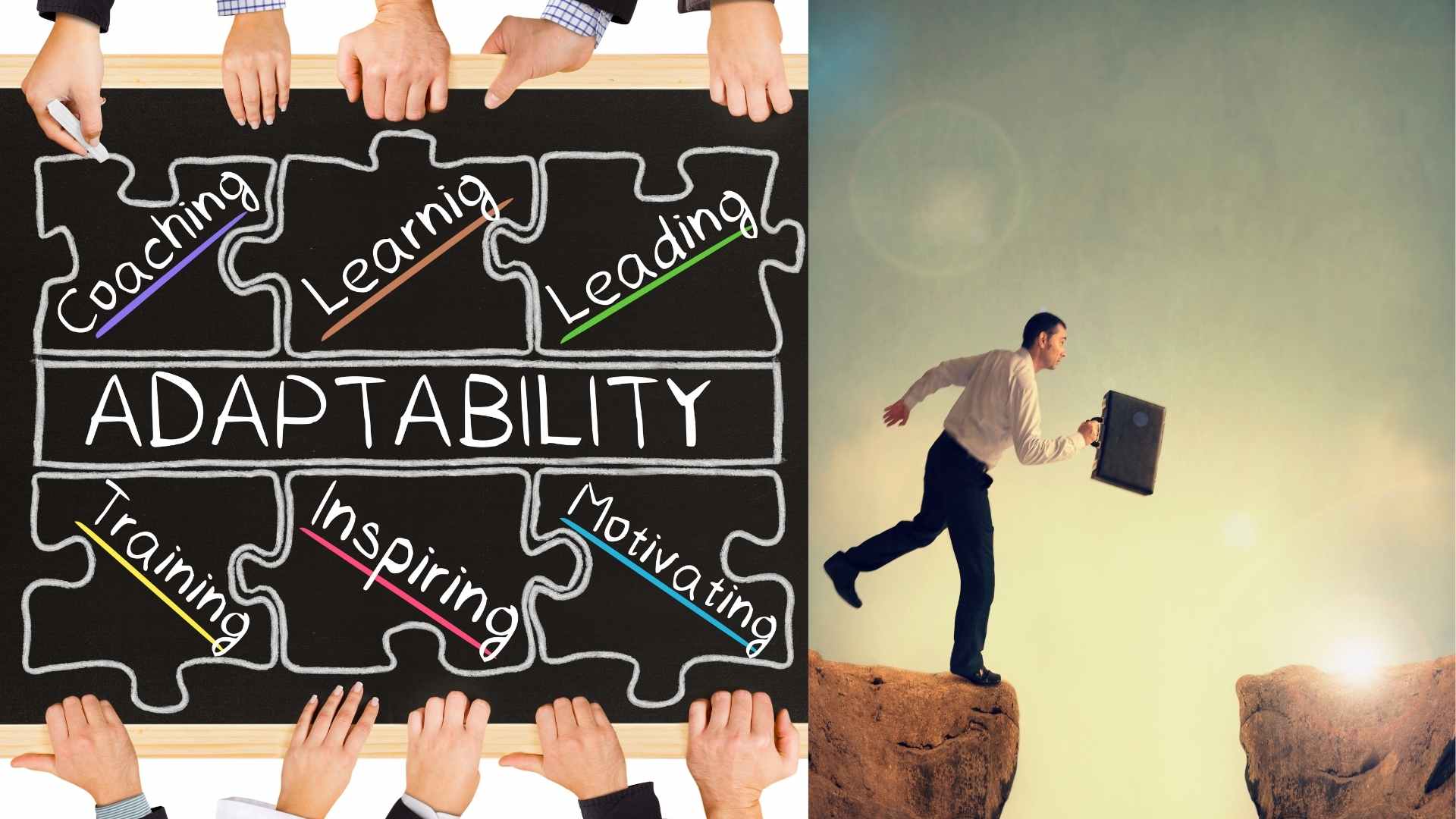
Top 5 Soft Skills For Organizations to Thrive
Top 5 Soft Skills For Organizations
Currently, large, medium, and small companies around the world set their sights on professionals who have been able to develop their soft skills to complement their studies and expertise. They have re-evaluated their hiring selection process by not giving so much relevance to the number of diplomas that a candidate has and focus on the development of their soft skills.
Historically, soft skills, like communication, teamwork and adaptability, have been perceived as the name it’s given: “soft”. Soft skills are traditionally given less importance than hard, tangible, quantifiable skills, like programming code or accounting. That perception has been changing and technology is accelerating this shift. But why now and what is this all about?
Unlike hard skills, which are mostly identified with the academic knowledge obtained during the formal training process, soft skills have to do with the integrated implementation of skills, which includes people, social skills, and values acquired. Just imagine the contribution a well balanced, integrated individual who is able to work well in a team, understand the company’s thesis, and engage in creative problem solving. Compared to the contribution of another individual who is unable to work well in a team, has a difficult time understanding others and being understood, and doesn’t adapt well to changes.
The first individual is malleable and flows with the changes of the micro and macro environment while the other is resistant and presents challenges to the flow of work. Comparing these two extremes (an individual who has soft skills and another who lacks them), it is quite clear to see how these individuals can affect the overall business. Employees are the cells of a business body and if the individual cells are healthy and thriving then so will the body.
Soft skills competency is a strong indicator of long term job success in an individual and a key factor why companies are paying attention to these skills. Depending on the job and the person’s role in the company, the soft skills requirement could easily change. However, the five that are highlighted here are extracted from a LinkedIn report. LinkedIn analyzed all the information collected among its more than 600 million users, revealing the 5 skills that are the most in-demand: Creativity, Persuasion, Collaboration, Adaptability and Emotional Intelligence. Let’s explore the importance of these five soft skills, what benefits they bring, and how to promote them in your organization.
Creativity

Creativity is the ability to generate original ideas, processes, or solutions and can be executed on a micro and macro scale. On the micro scale, individual creativity centers on ideas or innovations created by a single individual, like an artist creating a painting. On the macro scale, organizational creativity centers on ideas or innovations attributed to a group of people that all work for a common goal. That could be a team developing, creating and marketing a new product. All organizational creativity is a direct result of individual creativity.
Benefits:
Encouraging creativity among employees is one of the fuels for development and growth within a company. In addition, it prevents us from getting stuck in a single business idea and diversifies a company’s offering. This diversification in thought and problem solving is crucial today, since markets are experiencing constant change and volatility. Lastly, creativity leads to innovative ideas and that innovation makes companies more competitive. Creativity leads companies to stay relevant in the marketplace.
Tips to promote Creativity:
- Offer your employees a pleasant space to encourage their creativity. Create an environment where they feel at ease, comfortable and relaxed. A positive work environment is the beginning of great results.
- Allow your employees to explore new ideas without the fear of being reprimanded or being judged. It is important to remember, as with any idea, there is a possibility of failure. Do not judge, or see this negatively. Allow the team members the security they need to gain new experiences and take creative risks.
- Organizing various games between employees, in the office or online, is also a good idea to have fun and stimulate creativity at work. You will also be promoting camaraderie, the creation of new strategies, skills, and of course teamwork.
Persuasion

Persuasion is the ability to convince a person through effective communication to think or behave in a certain way. Persuasion can take any of the forms we communicate: verbally, non-verbal, media, emails, etc. Most people see sales positions as the only place this skill is needed, but in reality, this is a crucial skill needed in almost all positions. Think about it: everyday managers persuade their teams to do unpleasant but needed tasks, team members persuade each other on what decisions to make on a project, IT firms persuade clients to invest in better software, and team leaders put together presentations to persuade their superiors to increase their budgets.
Benefits
The art of persuasion opens the door to increased opportunities and sales which leads to growth in any company. Let’s face it, we are all selling “something” at many junctions in our careers. Persuasive people have the incredible ability to make other individuals understand and buy-into their way of seeing things. Having employees with this skill is extremely beneficial for your organization because they are able to accurately assess the needs of the target audience, build rapport, focus on the ‘selling’ points, and mitigate objections. Persuasion helps build positive relationships, leads to the achievement goals, and promotes success in a company.
Tips to promote Persuasion
Persuasion is a skill that can be learned and improved. Persuasion involves five key pillars:
- Assessing the audience's needs
- Building rapport
- Focusing on the benefits
- Countering objections
- Finding common ground
Companies must develop a process to cultivate these five pillars within their own teams. Every company must understand the target audience, how to find and connect with that target audience, the features/benefits that will compel that target audience to invest, and finally understand and neutralize objections to the offering. If a company is able to clearly communicate these five pillars to every employee and empower employees to buy-in and communicate these effectively then they will experience growth.
Collaboration

Collaboration takes place when two individuals or more work together to achieve a common goal or share ideas or knowledge. Collaboration also has a micro and a macro component as well. On a micro scale, collaboration happens between two individuals, or even within a small team, to achieve or do something. This micro effort bubbles over to the macro ecosystem of a company. Collaboration on a macro scale, comes down to coordinating the efforts of departments and teams achieve the mission and vision of the company.
Benefits
When there is good collaboration between teams, your organization is more capable of handling sudden changes. Employees are eager to take on new projects, they embrace changes as a challenge, and are not easily disempowered because they support each other. Collaborative teams tend to be happier as they feel connected with one another. This leads to better performance and results.
Tips to promote Collaboration
- There are a few successful ways to promote collaboration within your organization.
- Be transparent by sharing the company’s goals and biggest challenges with your teams. By allowing them to help address these matters in the community, they feel included which leads to team cohesion.
- Establish a judgment-free culture where employees can express themselves without fear of making mistakes or being judged.
- Embrace innovation by encouraging teams to bring ideas to the table even if they might be strange, big, or small. Let them feel that they are contributing to something bigger and this feeling leads to buy-in and collaboration.
- Encourage teams to brainstorm and also analyze the challenges your company is currently facing.
- Have an ‘open door’ policy and encourage teams to share their thoughts and ideas on a regular basis.
Adaptability

Having adaptability skills means to be open and willing to learn new things, take on new challenges, and make adjustments to suit changes. Like collaboration and creativity, adaptability is an individual skill that boils over to the organization as well. An adaptable individual possesses qualities that adjust well to changes in environments and means the person can respond quickly to changing ideas, responsibilities, expectations, trends, strategies and other processes.
An organization that is adaptable has built in values that allows for seamless changes in the way business is run. Adaptability should not be confused with flexibility, although the two are used interchangeably at times. Flexibility means the capacity to bend without breaking, it is a short term adjustment. Flexibility is useful when negotiating a contract. On the other hand, adaptability means the ability to change or be changed to fit changes circumstances, it is a long term, permanent adjustment. Adaptability is needed when a new technology or process is introduced to a team.
Benefits
In a world that is constantly changing, it is crucial for individuals and companies to adapt quickly. Adaptability is vital in today's volatile markets and reacting quickly allows for the company to stay relevant. An individual who possesses this skill is open to change without feeling frustrated, has the ability to see changes as opportunities, and improves personally and professionally and as a consequence are happier. These individuals are able to interpret their environment to stay current and move forward.
Tips to promote Adaptability
- Optimism is a great way to begin the adaptability process. Ensure that the ‘brighter side’ of any change is at the forefront of the discussion while managing the challenging aspects accordingly.
- Letting go of the “this is the way things are” or “this is the way things are always done” mentality.
- Encourage open-mindedness and re-frame change in a positive light.
- Offer learning opportunities. When individuals are more informed and educated, they are more easily able to see different perspectives, views, and insights. This elevated thinking is the foundation for adaptable mindsets.
Emotional Intelligence

Emotional intelligence is the individual’s ability to express and control emotions. However, emotional intelligence is also the ability to understand, interpret, and respond to the emotions of others as well.
Emotional intelligence as a skill is crucially important to how well an individual manages themselves and relationships. Some experts suggest that it is more important than a person’s IQ or crystallized/fluid intelligence.
Benefits
Emotional intelligence allows individuals to build trust and rapport quickly and understand other people’s feelings to empathize with them. Emotional intelligence is a vital skill to develop good teamwork and lead a team. Emotional intelligence lends itself to a person’s ability to exercise self control and compassion. Empathy, compassion, better teamwork, better leadership are all great reasons why emotional intelligence should be a top skillset your team members should have.
Tips to promote Emotional Intelligence
- Encourage individuals to observe their reactions to others and be mindful of how they feel and what they say.
- Have managers and team leads pay attention to the actions and reactions of the team members.
- Empathize when a negative reaction or behavior is identified. The behavior often comes from fear of judgment and rejection, or from previous traumatizing emotional experiences. Avoid confrontations and instead focus on a solution by finding ways to stay positive in any situation and be a mentor by demonstrating the proper way to act.
- Discuss emotional intelligence openly and explain why it is important and the benefits of developing this skill. The team members that are open to change will be interested to learn more to help themselves.
Conclusion
It is easy to arrive at the conclusion that soft skills are truly power skills that should be top priority in all organizations. Employees with good soft skills are crucial to your company’s productivity, growth rate, and overall success. The five skills detailed here will hopefully give you greater insights into how you can increase the functions of your teams and consequently increase the results achieved in your organization.
Soft skills demand a lot of self-mastery from employees as people, but it is reassuring to understand that they can be taught and there are many ways to improve and develop them within your current teams. Ideally however, it is a much better strategy to source and hire individuals who already have these skills and therefore will be much better fit to your teams, mission, and vision. Pyxai’s innovative, asynchronous video interviewing platform combines core interviewing questions and soft skill assessment to give your organization the ability to identify these highly skilled, high-performing individuals.
